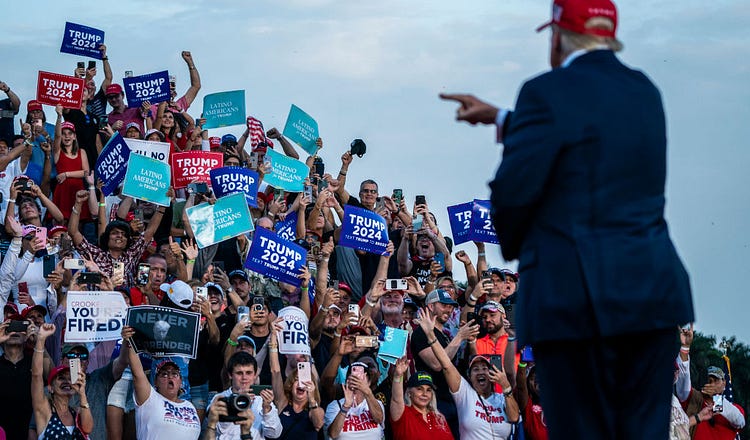
When I was an editor on The New York Times opinion page, I commissioned a smart essay from the writer and historian Philip Terzian about Donald Trump’s possible precedents, figures in American politics he may resemble. The word “unprecedented” was being used to describe every aspect of Trump’s presidency. As Terzian concluded, “While unique in his way, Mr. Trump is not a president like no other, nor a threat to democracy or the constitutional order. He has roots in the American civic tradition, which is considerably more complex, and more fractious in tone, than we care to remember.”
Readers reacted strongly to this essay, sending in letters about it, one of which the Times published. The critic countered that Terzian’s argument “was a misguided and ahistorical attempt to normalize President Trump’s rhetoric and actions by comparing him to former presidents.”
With Trump’s second inauguration around the corner, I thought revisiting this argument, and reassessing the president-elect’s rhetorical strategy, would be worthwhile. I reached out to Charles Zug, assistant professor of political science at the University of Missouri and author of Demagogues in American Politics (2022) to ask him where he thinks Trump’s rhetoric fits in the American political tradition. Also, don’t miss the lightning round, in which we answer the question: Is Greta Thunberg a demagogue?
The following has been edited for clarity and concision.
Adam Rubenstein: You wrote the textbook on presidential rhetoric and demagoguery. Could you define demagoguery for us? And tell us where it fits in the American political tradition?
Charles Zug: Demagoguery is unavoidably paradoxical. It’s difficult to define, even though it so clearly refers to a recognizable form of behavior. The most general kind of definition you’re likely to encounter says something like, “Demagoguery is the purposeful manipulation of peoples’ emotions and feelings for the sake of obtaining political power and using that power in vicious ways.”
In politics, you’d have to be obtuse (or gravely naive) to claim that you’ve never witnessed this kind of behavior. The rub, however, is in the last three words of that definition: If you define demagoguery as “bad” from the outset, you fashion it as a tool for partisan weaponization. No one has an incentive to own that their partisan is a demagogue; by the same token, they have every incentive to brand their partisan adversaries as demagogues.
For this reason, most people throw their hands up in frustration before they even launch a proper inquiry into the subject of demagoguery. I think it makes more sense to think of demagoguery as a morally neutral form of rhetoric, instead of defining it from the outset as “morally vicious.” This approach alleviates the need to weaponize the concept, as well as the need to guard ourselves from its weaponization by others.
AR: How did the American founders themselves conceive of, and deploy (if they did), demagoguery?
CZ: The American founders overwhelmingly spoke of demagoguery as a bad thing. They did so for different reasons. Most of the founders were unreflective elitists who simply associated demagoguery with the rabble and the petty politicians who courted the rabble’s favor. At the same time, a few of the founders were extremely intelligent, and had deeper reasons for wanting to marginalize demagoguery from the polity they were designing. For these folks, it was not primarily elitism, but rather a set of reasoned arguments about constitutionalism and the common good that induced skepticism toward demagoguery. Broadly, these founders were concerned with the routinization of demagoguery in the constitutional order. They feared that frequent use of demagoguery would put undue stress on the state, undermining, in the long run, the state’s ability to perform its basic tasks by eroding public confidence in the duly constituted offices. Their fears were not misplaced.



